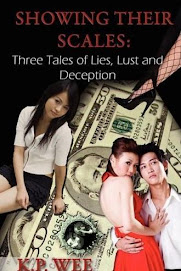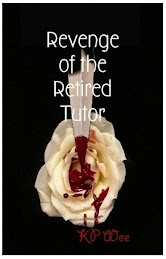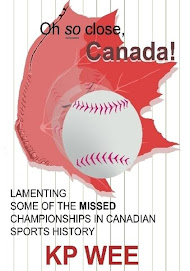The Associated Press has reported that the New York Yankees have re-acquired right-handed pitcher Javier Vazquez, who spent last season with the Atlanta Braves.
Vazquez will head to New York, with outfielder Melky Cabrera going to the Braves.
Sure, Vazquez had a strong season in 2009, and was one of the top pitchers in the National League. He went 15-10 with a 2.87 ERA and 238 strikeouts, helping Atlanta stay in wild-card contention until September.
He even finished fourth in the NL Cy Young balloting.
But haven't the Yankees seen this guy before already?
Back in 2004, Vazquez spent one miserable season in the Bronx, and was one of the culprits in the biggest collapse in baseball postseason history.
Yes, he was an All-Star with the Yankees, but he went 4-5 with a 6.92 ERA (!!) in the second half. His postseason was even worse, when he got the ball in Game Four of the ALDS at the Metrodome and got rocked.
Ruben Sierra's three-run home run off Juan Rincon rescued the Yankees, however, and New York moved on to the ALCS against the hated Red Sox.
For that series, Vazquez was banished to the bullpen, but still found a way to screw the Yankees. In Game Three, he relieved an ineffective Kevin Brown in the third inning, and was rocked for two runs immediately.
Fortunately for him, the Red Sox's Curtis Leskanic was even worse, and the Yankees bombed their way to a 19-8 win for a 3-0 series lead. Vazquez was even credited with the victory, but it was ugly:
4.1 IP, 7 H, 4 R, 2 BB, 4 K, 1 HR.
That was the last time the Yankees would win the rest of the postseason.
The Red Sox won the next three, and in Game Seven, Vazquez once again relieved Brown, this time, in the second inning with the bases loaded.
New York was down 2-0, and called on him to stop the bleeding. As witnessed in the 2003 ALCS against the same Red Sox (ie. the Aaron Boone game), a Game Seven deficit was not insurmountable, as long as the guys on the mound kept the runs to a minimum.
And what does Vazquez do? Serves up a grand slam, on the first pitch, to Johnny Damon, and the rout was on. And if that wasn't good enough, he served up another two-run bomb to Damon two innings later, after the Yankees had just got on the scoreboard.
In the offseason, Vazquez was dealt to Arizona in the Randy Johnson deal, ending his horrible tenure on the team.
Never mind he's a .500 pitcher (142-139, 4.19 ERA). The fact remains that he's already pitched for the pinstripers before, and he failed miserably.
Okay, so the regular season means nothing when it comes to New York. It's the playoffs that matter. Well, take a look at his postseason history. His postseason ERA: 10.34. And this includes a start in the 2008 ALDS for the Chicago White Sox, where he imploded for six runs in only 4.1 innings--serving up two home runs to Evan Longoria--in his Game One outing against Tampa Bay.
And didn't White Sox manager Ozzie Guillen--who knows a little about winning, having guided Chicago to its only championship in the last 92 years in 2005--have an issue with Vazquez last year?
Guillen, who is known to have outbursts about players to the media, criticized him for his lack of performance in big games. The manager said publicly before the start of an important three-game series against the Twins in late September 2008: "He hasn't been" a big-game pitcher, and "that's the bottom line."
(For the record, Vazquez then went out and dropped a 9-3 decision at the Metrodome, getting pounded for five runs in his pitiful four innings of work. In fact, over his final eight starts for the ChiSox, he was 2-6 with a 5.89 ERA.)
If he couldn't get the job done in Chicago, how can he get it done in New York?
And it's already been talked about to no end this past season: Pitchers with bad records in the AL who go over to the NL will have success. See Brad Penny and John Smoltz, who both failed in Boston, but went on to thrive in San Francisco and St. Louis, respectively.
So, to summarize:
1) Vazquez has already failed in New York once.
2) He is not a big-game pitcher and has a woeful postseason history.
3) He's going from the more pitcher-friendly National League to the American League.
And this deal is going to work out for the Yankees?
What's up with that?
Tuesday, December 22, 2009
Monday, December 21, 2009
Brodeur Vs. Favre: Tale of Two Athletes
The comments made by two star athletes in two different sports over the weekend were notable--and a sharp contrast--but surprisingly, not much was made in the media of the one that actually was part of the winning team.
Instead, all over the Internet, people were commenting on the guy that lost on Sunday night.
Read more here.
Instead, all over the Internet, people were commenting on the guy that lost on Sunday night.
Read more here.
Thursday, December 10, 2009
Interview with Bill Ranford

I had the opportunity to speak with two-time Stanley Cup winner Bill Ranford earlier this week, as part of the research I'm doing for my next book project.
The 1990 Conn Smythe Trophy winner was gracious enough to take some time out of his busy schedule to do the interview. We talked his rookie season with the Boston Bruins, when he started two playoff games against the Montreal Canadiens after playing just four contests during the regular season. We also chatted about the Edmonton Oilers' last Cup-winning team.
Here are some of the highlights (while the rest I'll be saving for my project):
KP: You won the Cup in 1990 with the Oilers, but your first ever playoff game in the NHL came at the Montreal Forum in 1986, after you played just four regular-season games. What do you remember most about that first playoff game?
BR: Walking into the Montreal Forum, seeing the banners hanging on the ceiling...
KP: You guys, the Bruins, were pretty close in the standings with the Canadiens, but they ended up winning. Any thoughts on the rivalry?
BR: As you said, I'd played just four games... It was just a whirlwind tour for me. I was just excited about the opportunity.
KP: What do you remember about the triple-overtime game in Boston in 1990?
BR: The game ended up getting delayed a couple of times, due to fog and then the power failure. I remember just everyone being hungry. That was the toughest thing. The Boston Garden was an old building, with no air-conditioning, and the summer weather was on its way... and the humidity, not only in the building but in the dressing room, it was just ridiculous.
KP: What do you think the difference was between the power failure game in '88 and that one two years later?
BR: I think the first time in '88, we didn't know what the problem was. Second time around, was just a basic power failure and they knew there was a good chance to get the lights up and running again. It was delayed to get everything re-powered up in the building. It was delay after delay.
KP: Did you think after that first game you were going to win the series? After all, you had all the momentum...
BR: No, ironically... It was important to get the first game. We understood that. But we ended up having eight or nine guys with the flu. We were fortunate because basketball was going on at the time. At that time, you basically played every second night. But because there was a basketball game, we were fortunate and actually had two days off in between games, and most of our guys didn't eat until our pre-game meal before Game Two, so we were worried because of the health of our team.
* Thanks, Bill, for the interview! *
Subscribe to:
Comments (Atom)






